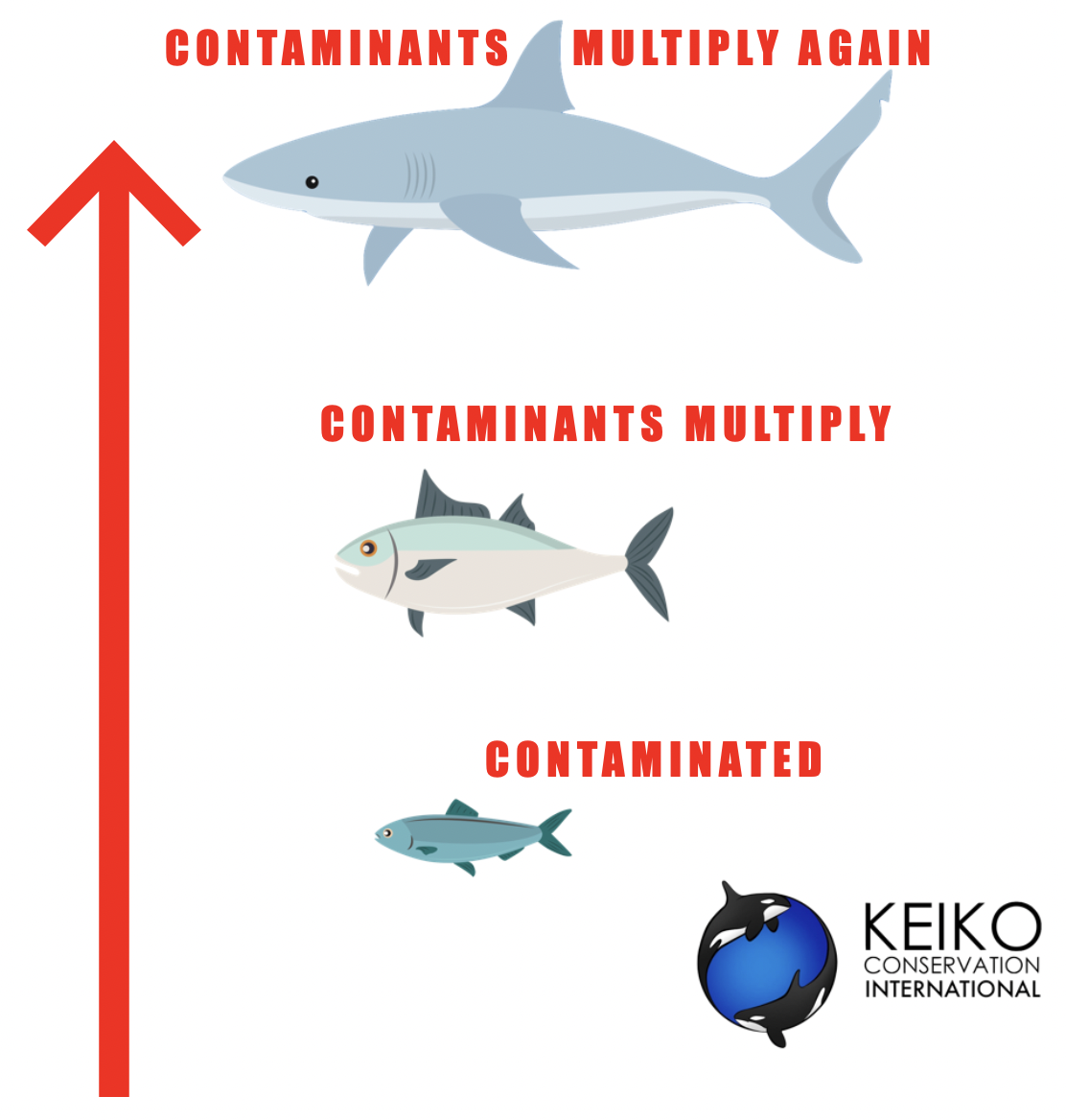The Dangers Of Eating Shark Meat
Why is shark meat dangerous and how does the meat become toxic?
As we continue to contaminate the oceans, fish and other marine life absorb some of the bio-toxins and heavy metals. These toxins multiply each time they move higher in the food chain, a process known as biomagnification. Being at the top of the food chain, sharks easily accumulate high levels of mercury and other toxins that then also become unsafe for us to consume.
Is it safer to eat younger sharks?
Many suggest the solution is to only eat sharks under a certain size, arguing that they haven’t had a lot of time to accumulate these dangerous contaminants, or at least not very high levels of them. While this may keep the consumer “safer” from certain metals and toxins, others like PCBs and DDTs can be passed to infant sharks through their mothers’ fatty tissues. PCBs and DDTs haven’t been produced in 30 years but we have yet to eliminate it from our rivers, lakes, and coastal areas where they have been contaminating marine life, including sharks. PCBs, which were primarily used as cooling fluid for electrical equipment and machinery back when it was legal, can cause birth defects and studies have linked it as potentially toxic to immune systems, reproductive organs, and thyroid. DDTs were used as an insecticide in the 1940s and for 30 years the US used over a billion pounds for agriculture and commercial industries. It can cause harmful effects to the nervous system and long term exposure can cause neurological and cognitive problems.
Another reason not to consume juvenile sharks? Sharks are slow to sexually mature, they don't reproduce early in life. Removing juvenile sharks can be damaging to the ecosystem they contribute to, not just now but in the future as well.
What other toxins can be found in shark meat & how do they affect consumers?
Methylmercury:
Although mercury can naturally occur in the ocean it is heavily released from our industrial pollutants. As it accumulates it becomes methylmercury and is absorbed by marine life.
Methylmercury bioaccumulates, staying in the consumer’s system, whether the meat is fresh or frozen.
Toxicologist Dr. Hermann Fruse of the University of Kiel in Germany stated that mercury is “one of the most biologically active and most dangerous poisons to humans.”
What can methylmercury do to average consumers?
headaches
tremors
cognitive dysfunction
serious birth defects
damage to the central nervous system
memory problems
depression
kidney damage
cancer
brain damage
Lead:
Even lead has been found in shark meat in high levels!
Lead poisoning can cause:
headaches
pain
seizures
coma
Arsenic:
Jann Gilbert of Southern Cross University in Australia presented findings of dangerous levels of arsenic found in shark meat as well. Gilbert studied Sandbar, Dusky, Great White, Whale, Dwarf Pygmy, and Hammerhead Sharks. They were all found to have levels of arsenic way beyond recommended consumption standards. Gilbert stated that the consumption of these species can be extremely dangerous and should be avoided at all costs.
This is because when consumed, arsenic can cause:
damage to the lungs
skin damage
kidney damage
liver damage
heart attack
stroke
cancer
death
Urea:
Another reason to rethink eating shark meat is high levels of urea which is secreted from shark skin. Urea being the chief nitrogenous waste from marine mammals. It is the non-toxic nitrogen-containing substance which humans excrete in their urine which keeps the fish from drying out in salt water.
After sharks are killed and left out of the water, decomposition occurs which means high amounts of ammonia are produced. When the shark dies the urea deteriorates back to ammonia, so the meat will taste and smell like ammonia. In order to hide the smell, markets will drench unprocessed shark meat in milk to reduce the strong odor.
THE VERDICT?
All personal feelings towards sharks aside, eating their meat can clearly cause us alarming harm! As the shark meat trade continues and we get closer and closer to wiping out sharks completely, the catastrophic effect it is having on the ocean is becoming scarily tangible. There's no such thing as a healthy shark-less ocean. The ocean needs sharks and we need the ocean, no matter how far we live from it.
SOURCES
Toxic Effects of Mercury on the Cardiovascular and Central Nervous Systems
Lopez, S., Abarca, N., Meléndez, R., Heavy Metal Concentrations of two highly migratory sharks (Prionace glauca and Isurus oxyrinchus)in the southeastern Pacific waters: comments on public health and conservation. Tropical Conservation Science Vol. 6 (1) 126-137, 2013.
Kim SW, Han SJ, Kim Y, et al. Heavy metal accumulation in and food safety of shark meat from Jeju island, Republic of Korea 2019
Gelsleichter J, Sparkman G, Howey LA, Brooks EJ, Shipley ON (2020) Elevated accumulation of the toxic metal mercury in the Critically Endangered oceanic whitetip shark Carcharhinus longimanus from the northwestern Atlantic Ocean. Endang Species Res 43:267-279.

